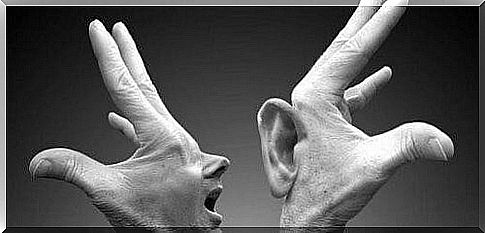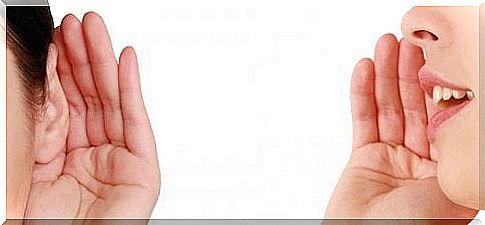How To Listen To What Others Have To Say?

How to listen to understand? Listening to the other person is not easy. Very often we do not realize that passively accepting someone else’s words is not enough. Let’s discuss this with a simple example.
Imagine two friends; one of them tells about a quarrel with her mother. When she finishes speaking, the other friend uses this moment to talk about her analogous situation. Is this what a good listener does?
Unfortunately not, because the other person did not really know how to listen to their friend. For her, listening was only a chance to move from the role of the listener to the role of the speaker. That’s not what active listening is about, and that’s what we’re going to talk about in today’s article.
What mistakes do we make when listening?
You may not even realize that you are actually unable to listen well to what other people are saying to you.
Perhaps you consider yourself a really good listener. Unfortunately, very often, even though we try to listen to the other person, we make a whole series of mistakes. They contribute to the fact that we do not listen to it properly.
The first error is the one already described as an example in the introduction. When someone tells us about an event in his life, and we turn that fact so that we can tell about ourselves. Another example, perhaps more drastic, is to change the subject quickly.

For example, a friend tells us about an argument with her mother, and we listen to what she has to say. And then we say, “oh, this is really nasty, how’s your work?”
The third mistake is to trivialize and downplay the problem someone approaches us with.
Repeating such phrases as “don’t worry”, “it’s nothing like this” or “it will pass in a moment” does not help our interlocutor, and even testifies to our lack of commitment and the fact that we cannot listen to the other person.

The fourth situation to avoid is telling someone what to do in a given situation, even though it is quite an unattainable scenario. As you can see in all these examples, the listener did not really know how to listen at all, and the speaker was not heard.
Lack of commitment and inability to listen
Many times we spend a lot of time talking to someone, which makes us think that we can listen and understand the other person very well. In reality, however, we only use every opportunity in which we can speak instead of listening.
Even if we already resort to giving advice to someone, we must be aware that each of us views the world differently; the ability to put yourself in someone else’s place is extremely valuable and allows you to honestly advise the other person in such a way that they can actually take this advice.

Advice that is based only on our own experience and beliefs, unfortunately, is only a reflection of our person and again we, not our interlocutor, are in the first place in our eyes.
When you can’t listen, you put yourself above everything else, and your ego comes to the fore. You may not be able to admit it, but take a moment to reflect on it and you will see how often we fail to engage in conversation properly.
How good to listen?
Now that we have listed all the mistakes we commonly make in our conversation, we can move on to the more positive part of the article – advice on what to do to change your attitude and learn to listen to what others have to say to you. Here are some steps:
- Don’t give advice:
As we mentioned, you can’t tell someone how to behave or suggest what is best for them.
Instead, it is better to ask a few additional questions that will allow us to better empathize with the other person’s situation, take a moment to reflect and support her in making a decision. This is how a good listener and friend behave.
- Get involved:
If you really want to listen to your friend, don’t hesitate to ask questions that will help you better understand what he is talking about. Ask for his opinion on various topics and plans for the future – these are just samples of how to engage in dialogue.
What else is worth knowing?
- Don’t just talk about yourself:
Concentrate on what the other person is saying and don’t interrupt just to interject on yourself. Not everyone needs an immediate comparison of their life with ours. And if he wants to, he can ask us about our similar experiences.
- But don’t underestimate it. Even if a problem is trivial to you, it doesn’t have to be that to the other person. Do not trivialize the situation, do not minimize the importance of the problem.

Now you know how to listen to actually hear what the other person is saying to you. You also know how to curb your selfish impulses and open yourself to dialogue. Hopefully, this will keep you from seeing listening as a passive activity. Get involved and learn to listen.









